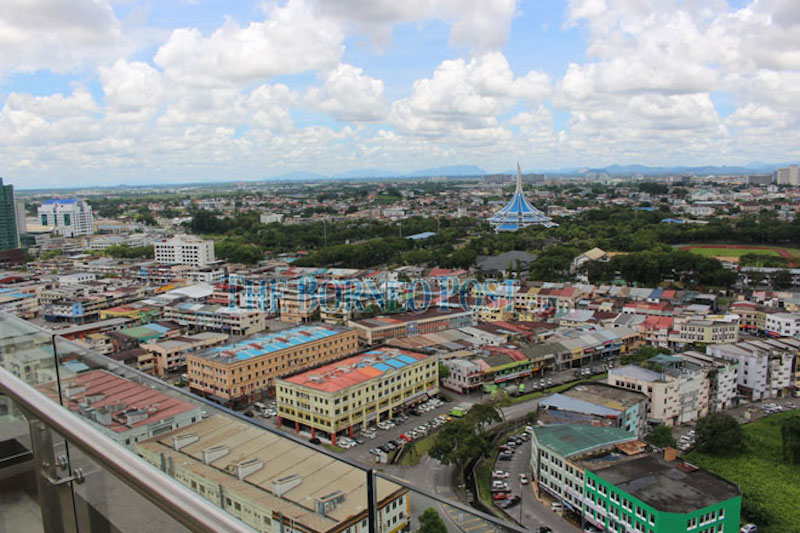KUCHING, Nov 9 — The re-implementation of the conditional movement control order (CMCO) in Kuching District from today to November 22 due to the rising number of new Covid-19 cases has received mixed reaction from the public.
Those interviewed by The Borneo Post said while they understood that the aim of the CMCO was to curb the recent spike in infections, they were concerned it would negatively impact jobs and the livelihood of the people.
Student Cherishe Ng Hui Hui, 23, said a prolonged CMCO could result in more businesses closing down and hoped the government would step in to mitigate the impact on small and medium-sized enterprises (SMEs).
“While it is proper and appropriate to implement the CMCO due to the steady and daily increase in Covid-19 cases, there is a need for a comprehensive approach to deal with the economy so that businesses can survive.
“Not just the state government, but the federal government must take note and plan how to help SMEs and businesses. They can consider giving a loan moratorium to reduce their financial burden and prevent them from closing down,” she said.
Ng said many of her family members and friends operate small businesses — some have already close shop while others are on the verge of doing so — and said help needs to be extended to all layers of society, including the M40 group and business owners.
“For example, small tourist companies have been forced to close down as they have no income and have to retrench their workers. Now there are many ‘new poor’ — people who have lost their jobs during the pandemic,” she added.
For Australian expatriate Andrew Lawrence, 38, he said the implementation of the CMCO in Kuching District reflects the lax attitude of some people in preventing the spread of Covid-19.
“There were many times when I went out to pick up food where I saw staff without masks, or wearing their masks under their chins, talking to each other.
“This lax attitude is shared by a number of the populace who are doing the same by ignoring physical distancing, self-isolation or basic precautions,” he said.
Lawrence said Covid-19 will continue to spread as long as people allow it to spread, hence the importance of testing and isolating positive cases and tracking down close contacts before the virus has the opportunity to do more damage.
Edward Lai, 28, said the implementation of the CMCO is needed to bring down the number of cases in Kuching District in particular, and in Sarawak in general.
“The CMCO is pretty much needed at this point to restrict more movement of people and curb the spread of the disease.
“But even if the CMCO successfully cuts down the numbers, the awareness and consciousness has to be there to make sure there will be no more new Covid-19 infection waves,” said Lai, who is an events performer.
On a personal level, he said the pandemic has had a huge impact on his life as he is unable to perform shows at his regular locations due to those places not allowing dine-ins.
To make ends meet, he has signed up as an e-hailing driver while also delivering food.
For Sheila Medam, she said she backs the re-implementation of the CMCO as the safety and health of the people are paramount.
The 34-year-old banker said she will be working from home during the two-week period and would be able to have more time with her family.
“Looking at it positively, the CMCO gives me more work-life balance. I can spend more time with my family,” she said. — Borneo Post Online




















